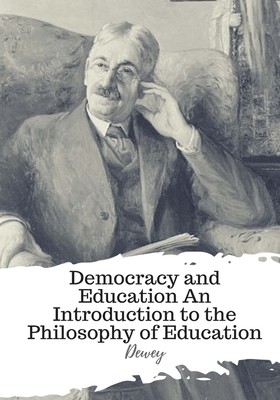
- We will send in 10–14 business days.
- Author: Dewey
- Publisher: CreateSpace Independent Publishing Platform
- ISBN-10: 1987577590
- ISBN-13: 9781987577594
- Format: 17.8 x 25.4 x 1 cm, softcover
- Language: English
- SAVE -10% with code: EXTRA
Democracy and Education An Introduction to the Philosophy of Education (e-book) (used book) | bookbook.eu
Reviews
Description
John Dewey's Democracy and Education: An Introduction to the Philosophy of Education seeks to both critique and further the educational philosophies espoused by both Rousseau and Plato. Dewey found that Rousseau's ideas overemphasized the individual, whereas Plato's did the same with the society that the individual lived in. Dewey felt this distinction to be a false one, seeing the formation of our minds as a communal process, like Vygotsky did. Hence an individual makes sense only as a part of society, and the society makes sense only as a realization of its individuals.
- Author: Dewey
- Publisher: CreateSpace Independent Publishing Platform
- ISBN-10: 1987577590
- ISBN-13: 9781987577594
- Format: 17.8 x 25.4 x 1 cm, softcover
- Language: English English
John Dewey's Democracy and Education: An Introduction to the Philosophy of Education seeks to both critique and further the educational philosophies espoused by both Rousseau and Plato. Dewey found that Rousseau's ideas overemphasized the individual, whereas Plato's did the same with the society that the individual lived in. Dewey felt this distinction to be a false one, seeing the formation of our minds as a communal process, like Vygotsky did. Hence an individual makes sense only as a part of society, and the society makes sense only as a realization of its individuals.


Reviews